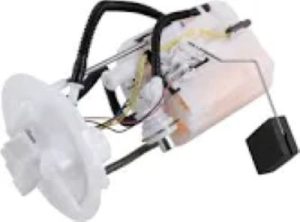There are many factors that need to be taken into consideration before you decide on a best fuel pump for your car, such as the vehicle fuel pressure type, the flow rate of the vehicle they are designed for.A close attention and analysis of all this parameters should help shipping which model works best with your specific cars engine. This pump sends fuel from the tank to your engine at the right pressure and flow, so using an inappropriate pump can cause a decrease in engine power output, lower gas mileage, or even a brokendown vehicle fueling system.
The fuel pressure that is required by the engine One other crucial factor to consider. A more busy technology of gasoline injected systems function at pressures of 40 to 70 psi. Should the pump be unable to supply the required pressure it would run the engine lean, leading to misfires, overheating or low power. Before buying a fuel pump, you need to check the right pressure range for your vehicles. Delivering insufficient pressure starves the engine, while delivering excessive pressure can damage fuel injectors, among other components.
Also, consider the flow rate; how much fuel can this pump put out over time measured in liters per hour (LPH) only. If you have a high-output setup such as a built engine, or if it's just not getting enough fuel at your desired base pressure, then you need more pump. For instance, a regular car may need a 100 LPH fuel pump, while an engine which is high performing might need the one that can provide from 200 to even 300 LPH. For example, if you are upgrading your engine for more power like by fitting a turbocharger then a fuel pump with higher flow rate is required in order that the the extra demands for fuel the engine will have can be met.
Another important thing to keep in mind is compatibility. Make sure the pump is compatible with your car make and model. Choosing a pump that is not compatible with your specific car can result in challenges when it comes time to install, or even delivers fuel improperly. Not sure, you can always find your vehicles Manual to help decipher which specified number of the original pump fits your vehicle Moreover, some cars have an in-tank fuel pump while others use an external one, which makes choosing the right type is crucial.

Fuel type is additionally vital considering in choosing a fuel pump. For a gasoline-powered vehicle, an ordinary pump will do the job but for an ethanol or diesel-powered vehicle needs a specialized pump that can support them. Using a standard gasoline pump can lead to premature failur Rodents are known to take up residence in parked cars left unused for extended periods.
As Tesla founder and CEO, Elon Musk put it — 'The way that I think of a product is, is it something that works for you within the context of your system'? That same logic extends to fuel pump selection; the thing needs to work harmoniously with your vehicle's engine and, by extension, its rest of its fuel system in order for it all to perform at peak.
Finally, be sure to take into consideration the fuel pump cost and warranty. A high-quality fuel pump can usually be purchased between $100 and $400 on average, depending of course on the specific vehicle models. Saving a few bucks on cheap pumps might feel good in the short term, but spending more for quality with a decent warranty will save your wallet by providing longer sustainable life from your investment.
To sum up, the process of choosing the appropriate fuel pump is critical to make sure your vehicle has: This will help to guarantee that the engine operates correctly and prevent expensive damage. To know further tips about how to choose the right Fuel Pump for your automotive, please visit Fuel Pump.
